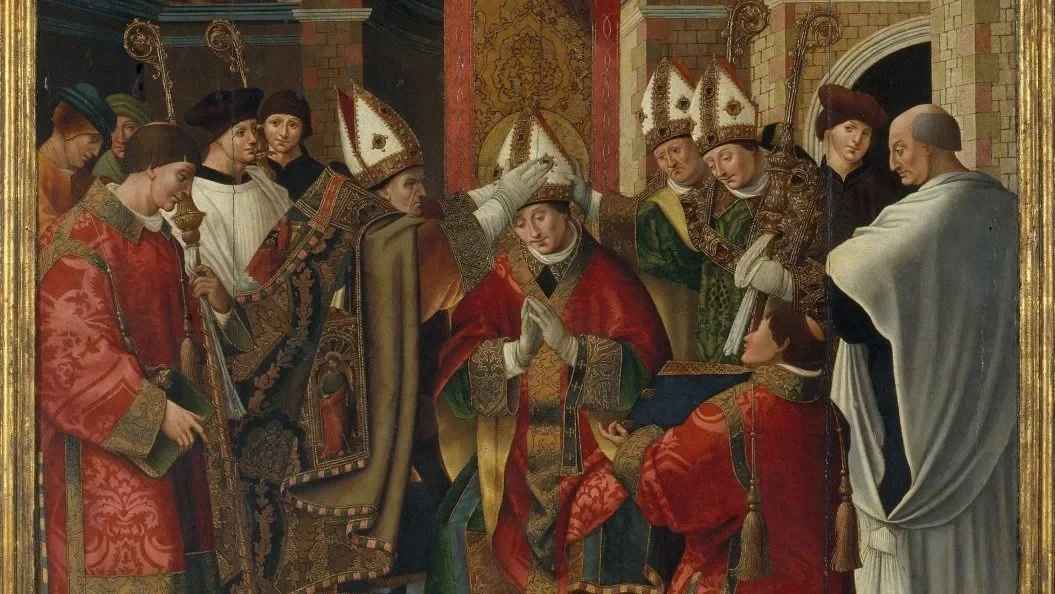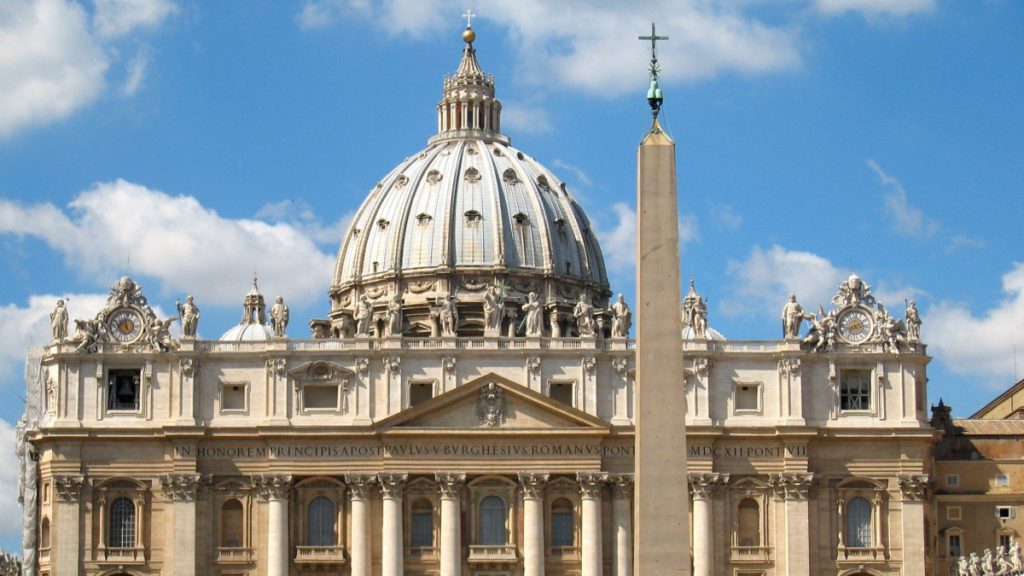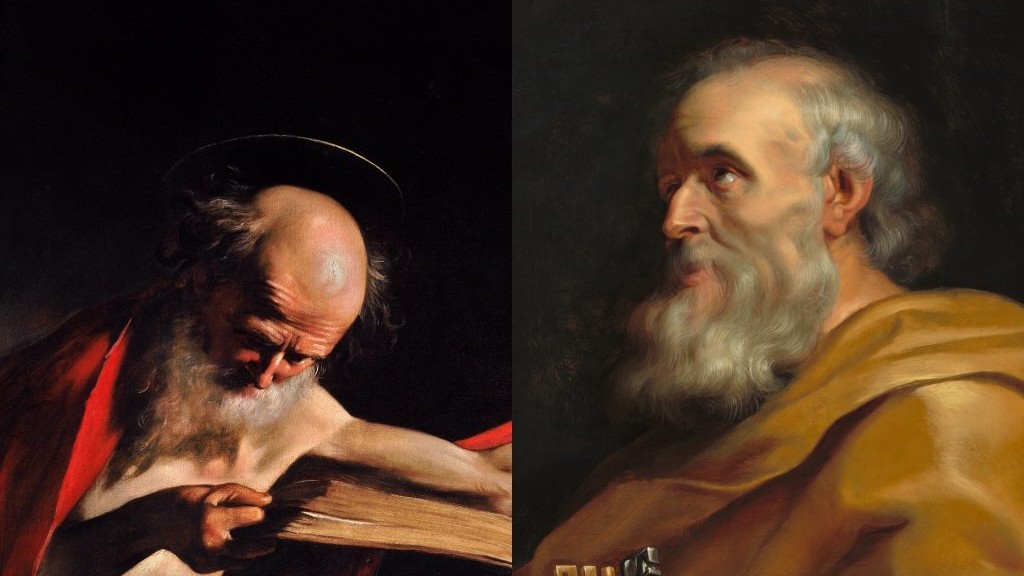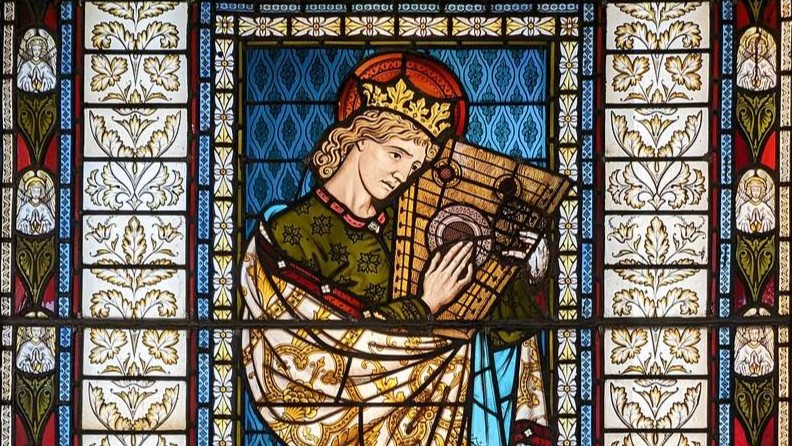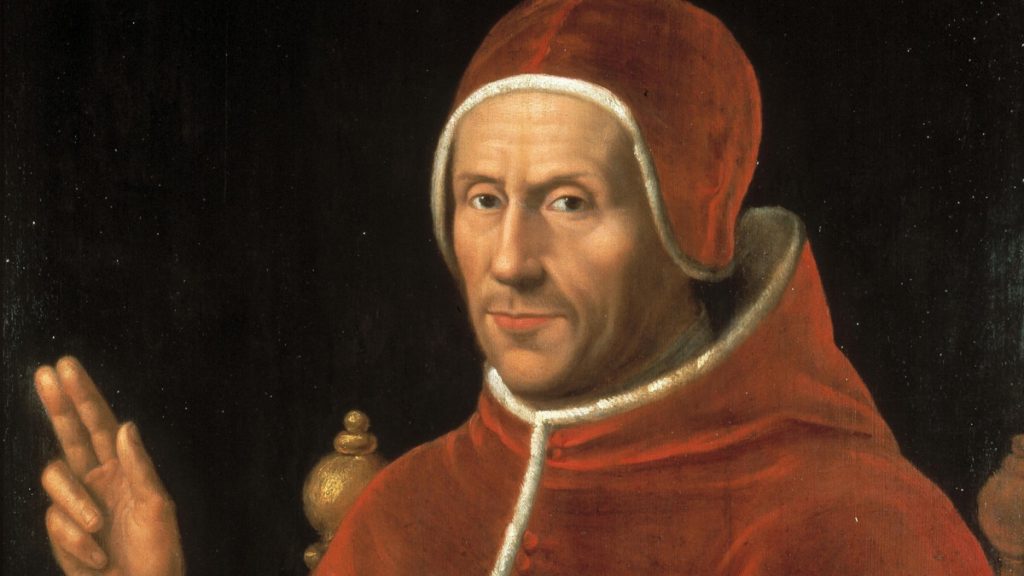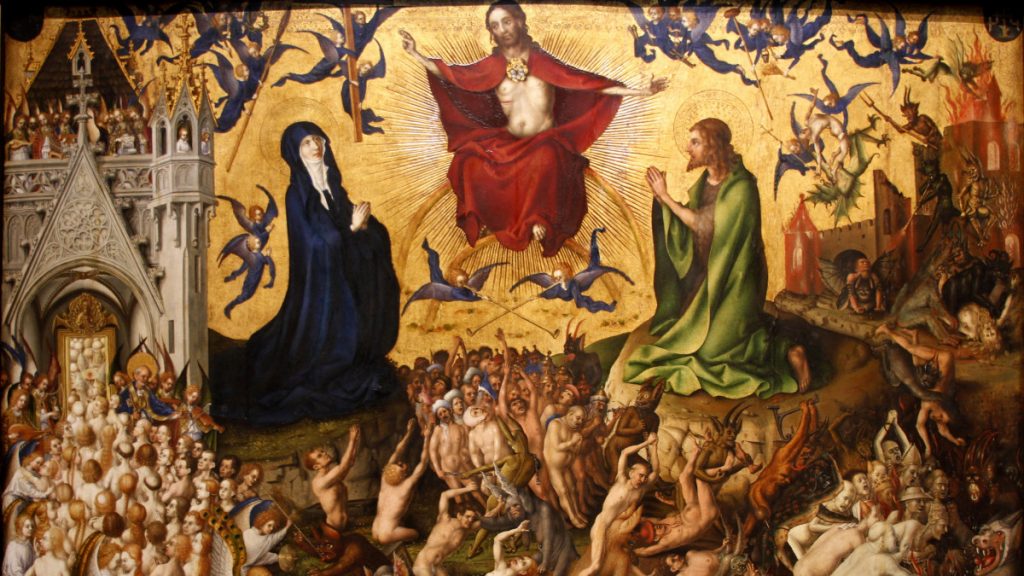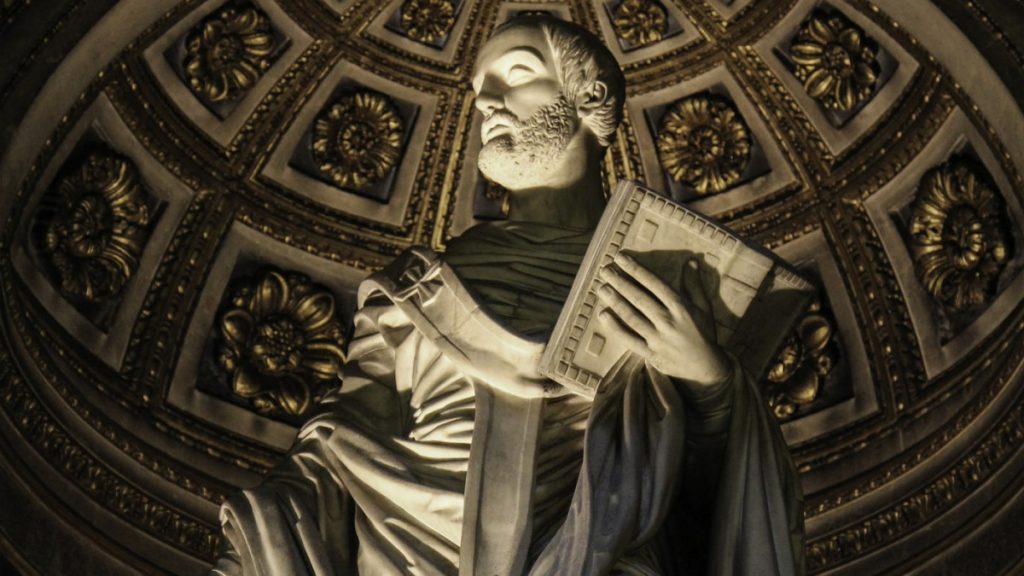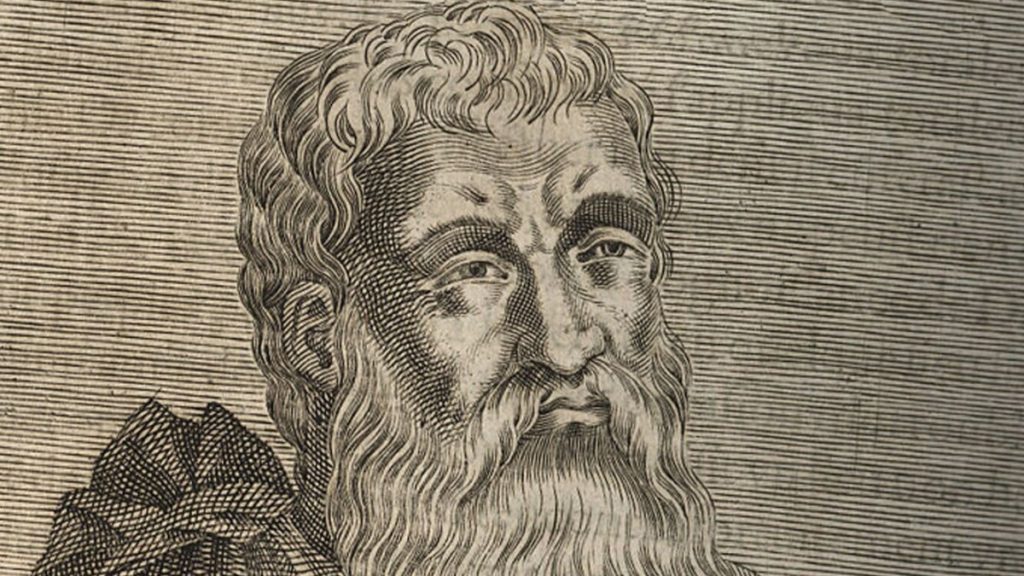(Updated June 30, 2025)
This Quote Archive is on Apostolic Succession. Each Archive is a treasury of original source quotes on various topics relevant to the Catholic Faith, and addressed in Becoming Catholic articles. They are intended to help people explore the “gold, silver, and precious gems” that have been mined and sifted from the sources of the Great Tradition by Eternal Christendom as a labor of love for our readers, and all seekers of Truth. They are periodically updated as more research is completed.
St. Pope Clement I (died 99) | WEST
St. Pope Clement I, Letter to the Corinthians (c. 80)
(§§42, 44)
(§42) The apostles have preached the gospel to us from the Lord Jesus Christ; Jesus Christ [has done so] from God. Christ therefore was sent forth by God, and the apostles by Christ. Both these appointments, then, were made in an orderly way, according to the will of God. Having therefore received their orders, and being fully assured by the resurrection of our Lord Jesus Christ, and established in the word of God, with full assurance of the Holy Ghost, they went forth proclaiming that the kingdom of God was at hand. And thus preaching through countries and cities, they appointed the first fruits [of their labors], having first proved them by the Spirit, to be bishops and deacons of those who should afterwards believe. Nor was this any new thing, since indeed many ages before it was written concerning bishops and deacons. For thus says the Scripture in a certain place, “I will appoint their bishops in righteousness, and their deacons in faith” [Isa. 60:17, LXX]…
(§44) Our apostles also knew, through our Lord Jesus Christ, that there would be strife on account of the office of the episcopate. For this reason, therefore, inasmuch as they had obtained a perfect fore-knowledge of this, they appointed those [ministers] already mentioned, and afterwards gave instructions, that when these should fall asleep, other approved men should succeed them in their ministry. We are of opinion, therefore, that those appointed by them [the Apostles], or afterwards by other eminent men, with the consent of the whole Church, and who have blamelessly served the flock of Christ in a humble, peaceable, and disinterested spirit, and have for a long time possessed the good opinion of all, cannot be justly dismissed from the ministry…
St. Hegesippus (c. 110-c. 180) | EAST
St. Hegesippus, Memoirs; cited by Eusebius, Church History (c. 180)
And when I had come to Rome I remained there until [Pope] Anicetus, whose deacon was Eleutherus. And Anicetus was succeeded by Soter, and he by Eleutherus. In every succession, and in every city that is held which is preached by the law and the prophets and the Lord.
St. Irenaeus of Lyon (c. 130-c. 202) | EAST/WEST
St. Irenaeus of Lyon, Against Heresies (c. 180)
(§1) It is within the power of all, therefore, in every Church, who may wish to see the truth, to contemplate clearly the tradition of the apostles manifested throughout the whole world; and we are in a position to reckon up those who were by the apostles instituted bishops in the Churches, and [to demonstrate] the succession of these men to our own times; those who neither taught nor knew of anything like what these [heretics] rave about…For they were desirous that these men should be very perfect and blameless in all things, whom also they were leaving behind as their successors, delivering up their own place of government to these men; which men, if they discharged their functions honestly, would be a great boon [to the Church], but if they should fall away, the direst calamity.
(§2) Since, however, it would be very tedious, in such a volume as this, to reckon up the successions of all the Churches, we do put to confusion all those who, in whatever manner, whether by an evil self-pleasing, by vainglory, or by blindness and perverse opinion, assemble in unauthorized meetings; [we do this, I say,] by indicating that tradition derived from the apostles, of the very great, the very ancient, and universally known Church founded and organized at Rome by the two most glorious apostles, Peter and Paul; as also [by pointing out] the faith preached to men, which comes down to our time by means of the successions of the bishops. For it is a matter of necessity that every Church should agree with this Church, on account of its preeminent authority…
(§4) But Polycarp also was not only instructed by apostles, and conversed with many who had seen Christ, but was also, by apostles in Asia, appointed bishop of the Church in Smyrna, whom I also saw in my early youth, for he tarried [on earth] a very long time, and, when a very old man, gloriously and most nobly suffering martyrdom, departed this life, having always taught the things which he had learned from the apostles, and which the Church has handed down, and which alone are true. To these things all the Asiatic Churches testify, as do also those men who have succeeded Polycarp down to the present time…
(§1) Since therefore we have such proofs, it is not necessary to seek the truth among others which it is easy to obtain from the Church; since the apostles, like a rich man [depositing his money] in a bank, lodged in her hands most copiously all things pertaining to the truth: so that every man, whosoever will, can draw from her the water of life [Apoc. 22:17]. For she is the entrance to life; all others are thieves and robbers. On this account are we bound to avoid them, but to make choice of the thing pertaining to the Church with the utmost diligence, and to lay hold of the tradition of the truth. For how stands the case? Suppose there arise a dispute relative to some important question among us, should we not have recourse to the most ancient Churches with which the apostles held constant intercourse, and learn from them what is certain and clear in regard to the present question? For how should it be if the apostles themselves had not left us writings? Would it not be necessary, [in that case] to follow the course of the tradition which they handed down to those to whom they did commit the Churches?
(§2) To which course many nations of those barbarians who believe in Christ do assent, having salvation written in their hearts by the Spirit, without paper or ink, and, carefully preserving the ancient tradition, believing in one God, the Creator of heaven and earth, and all things therein, by means of Christ Jesus, the Son of God; who, because of His surpassing love towards His creation, condescended to be born of the virgin, He Himself uniting man through Himself to God, and having suffered under Pontius Pilate, and rising again, and having been received up in splendor, shall come in glory, the Savior of those who are saved, and the Judge of those who are judged, and sending into eternal fire those who transform the truth, and despise His Father and His advent. Those who, in the absence of written documents, have believed this faith, are barbarians, so far as regards our language; but as regards doctrine, manner, and tenor of life, they are, because of faith, very wise indeed; and they do please God, ordering their conversation in all righteousness, chastity, and wisdom. If anyone were to preach to these men the inventions of the heretics, speaking to them in their own language, they would at once stop their ears, and flee as far off as possible, not enduring even to listen to the blasphemous address. Thus, by means of that ancient tradition of the apostles, they do not suffer their mind to conceive anything of the [doctrines suggested by the] portentous language of these teachers, among whom neither Church nor doctrine has ever been established.
Wherefore it is incumbent to obey the presbyters [priests] who are in the Church—those who, as I have shown, possess the succession from the apostles; those who, together with the succession of the episcopate [bishops], have received the certain gift of truth, according to the good pleasure of the Father. But [it is also incumbent] to hold in suspicion others who depart from the primitive succession, and assemble themselves together in any place whatsoever, [looking upon them] either as heretics of perverse minds, or as schismatics puffed up and self-pleasing, or again as hypocrites, acting thus for the sake of lucre and vainglory. For all these have fallen from the truth. And the heretics, indeed, who bring strange fire to the altar of God—namely, strange doctrines—shall be burned up by the fire from heaven, as were Nadab and Abiud [Lev. 10:1-2]. But such as rise up in opposition to the truth, and exhort others against the Church of God, [shall] remain among those in hell (apud inferos), being swallowed up by an earthquake, even as those who were with Korah, Dathan, and Abiron [Num. 16:33]. But those who cleave asunder, and separate the unity of the Church, [shall] receive from God the same punishment as Jeroboam did [1 Kings 14:10].
True knowledge is [that which consists in] the doctrine of the apostles, and the ancient constitution of the Church throughout all the world, and the distinctive manifestation of the body of Christ according to the successions of the bishops, by which they have handed down that Church which exists in every place…
Tertullian (c. 155-c. 220) | WEST
Tertullian, Prescription Against Heretics (c. 200)
(§§20-21, 32)
(§20) …They [the apostles] then in like manner founded churches in every city, from which all the other churches, one after another, derived the tradition of the faith, and the seeds of doctrine, and are every day deriving them, that they may become churches. Indeed, it is on this account only that they will be able to deem themselves apostolic, as being the offspring of apostolic churches. Every sort of thing must necessarily revert to its original for its classification. Therefore the churches, although they are so many and so great, comprise but the one primitive church, (founded) by the apostles, from which they all (spring). In this way all are primitive, and all are apostolic, while they are all proved to be one, in (unbroken) unity, by their peaceful communion, and title of brotherhood, and bond of hospitality—privileges which no other rule directs than the one tradition of the selfsame mystery.
(§21) …[W]hat it was which Christ revealed to them—can, as I must here likewise prescribe, properly be proved in no other way than by those very churches which the apostles founded in person, by declaring the gospel to them directly themselves, both vivâ voce, as the phrase is, and subsequently by their epistles. If, then, these things are so, it is in the same degree manifest that all doctrine which agrees with the apostolic churches—those molds and original sources of the faith must be reckoned for truth, as undoubtedly containing that which the (said) churches received from the apostles, the apostles from Christ, Christ from God. Whereas all doctrine must be prejudged as false which savors of contrariety to the truth of the churches and apostles of Christ and God. It remains, then, that we demonstrate whether this doctrine of ours, of which we have now given the rule, has its origin in the tradition of the apostles, and whether all other doctrines do not ipso facto proceed from falsehood. We hold communion with the apostolic churches because our doctrine is in no respect different from theirs. This is our witness of truth…
(§32) But if there be any (heresies) which are bold enough to plant themselves in the midst of the apostolic age, that they may thereby seem to have been handed down by the apostles, because they existed in the time of the apostles, we can say: Let them produce the original records of their churches; let them unfold the roll of their bishops, running down in due succession from the beginning in such a manner that [that first bishop of theirs ] bishop shall be able to show for his ordainer and predecessor some one of the apostles or of apostolic men—a man, moreover, who continued steadfast with the apostles. For this is the manner in which the apostolic churches transmit their registers: as the church of Smyrna, which records that Polycarp was placed therein by John; as also the church of Rome, which makes Clement to have been ordained in like manner by Peter. In exactly the same way the other churches likewise exhibit (their several worthies), whom, as having been appointed to their episcopal places by apostles, they regard as transmitters of the apostolic seed. Let the heretics contrive something of the same kind. For after their blasphemy, what is there that is unlawful for them (to attempt)? But should they even effect the contrivance, they will not advance a step. For their very doctrine, after comparison with that of the apostles, will declare, by its own diversity and contrariety, that it had for its author neither an apostle nor an apostolic man; because, as the apostles would never have taught things which were self-contradictory, so the apostolic men would not have inculcated teaching different from the apostles, unless they who received their instruction from the apostles went and preached in a contrary manner. To this test, therefore, will they be submitted for proof by those churches, who, although they derive not their founder from apostles or apostolic men (as being of much later date, for they are in fact being founded daily), yet, since they agree in the same faith, they are accounted as not less apostolic because they are akin in doctrine. Then let all the heresies, when challenged to these two tests by our apostolic church, offer their proof of how they deem themselves to be apostolic. But in truth they neither are so, nor are they able to prove themselves to be what they are not. Nor are they admitted to peaceful relations and communion by such churches as are in any way connected with apostles, inasmuch as they are in no sense themselves apostolic because of their diversity as to the mysteries of the faith.
Tertullian, Against Marcion (c. 209)
Then, at last, having conferred with the (primitive) authors, and having agreed with them touching the rule of faith, they joined their hands in fellowship, and divided their labors thenceforth in the office of preaching the gospel, so that they were to go to the Jews, and St. Paul to the Jews and the Gentiles. Inasmuch, therefore, as the enlightener of St. Luke himself [St. Paul] desired the authority of his predecessors for both his own faith and preaching, how much more may not I require for Luke’s Gospel that which was necessary for the Gospel of his master.
St. Cyprian of Carthage (c. 210-258) | WEST
St. Cyprian of Carthage, Letter 75: To Magnus, on Baptizing the Novatians (254)
Wherefore, since the Church alone has the living water, and the power of baptizing and cleansing man, he who says that anyone can be baptized and sanctified by Novatian must first show and teach that Novatian is in the Church or presides over the Church. For the Church is one, and as she is one, cannot be both within and without. For if she is with Novatian, she was not with Cornelius. But if she was with Cornelius, who succeeded the bishop Fabian by lawful ordination, and whom, beside the honor of the priesthood, the Lord glorified also with martyrdom, Novatian is not in the Church; nor can he be reckoned as a bishop, who, succeeding to no one, and despising the evangelical and apostolic tradition, sprang from himself. For he who has not been ordained in the Church can neither have nor hold to the Church in any way.
St. Gregory Nazianzus (c. 329-390) | EAST
St. Gregory Nazianzus, Oration 2: Defense of His Flight to Pontus, and the Priestly Office (362)
Since, however, I have mentioned Paul, and men like him, I will, with your permission, pass by all others who have been foremost as lawgivers, prophets, or leaders, or in any similar office—for instance, Moses, Aaron, Joshua, Elijah, Elisha, the Judges, Samuel, David, the company of Prophets, John, the Twelve Apostles, and their successors, who with many toils and labors exercised their authority, each in his own time…
St. Jerome (c. 342/347-420) | EAST/WEST
St. Jerome, Letter 14: To Heliodorus, Monk (c. 376)
Far be it from me to censure the successors of the apostles, who with holy words consecrate the body of Christ, and who make us Christians. Having the keys of the kingdom of heaven, they judge men to some extent before the day of judgment, and guard the chastity of the bride of Christ.
St. Augustine (354-430) | WEST
St. Augustine, Against the Fundamental Epistle of Manichaeus (397)
For in the Catholic Church, not to speak of the purest wisdom, to the knowledge of which a few spiritual men attain in this life, so as to know it, in the scantiest measure, indeed, because they are but men, still without any uncertainty (since the rest of the multitude derive their entire security not from acuteness of intellect, but from simplicity of faith)—not to speak of this wisdom, which you do not believe to be in the Catholic Church, there are many other things which most justly keep me in her bosom. The consent of peoples and nations keeps me in the Church; so does her authority, inaugurated by miracles, nourished by hope, enlarged by love, established by age. The succession of priests keeps me, beginning from the very seat of the Apostle Peter [Rome], to whom the Lord, after His resurrection, gave it in charge to feed His sheep, down to the present episcopate. And so, lastly, does the name itself of Catholic, which, not without reason, amid so many heresies, the Church has thus retained; so that, though all heretics wish to be called Catholics, yet when a stranger asks where the Catholic Church meets, no heretic will venture to point to his own chapel or house. Such then in number and importance are the precious ties belonging to the Christian name which keep a believer in the Catholic Church, as it is right they should, though from the slowness of our understanding, or the small attainment of our life, the truth may not yet fully disclose itself. But with you, where there is none of these things to attract or keep me, the promise of truth is the only thing that comes into play. Now if the truth is so clearly proved as to leave no possibility of doubt, it must be set before all the things that keep me in the Catholic Church; but if there is only a promise without any fulfillment, no one shall move me from the faith which binds my mind with ties so many and so strong to the Christian religion.
St. Augustine, Reply to Faustus the Manichaean (c. 400)
The authority of these books [of Scripture] has come down to us from the apostles through the successions of bishops and the extension of the Church, and, from a position of lofty supremacy, claims the submission of every faithful and pious mind.
Now that all Faustus’ calumnies have been refuted, those at least on the subjects here treated of at large and explained fully as the Lord has enabled me, I close with a word of counsel to you who are implicated in those shocking and damnable errors, that, if you acknowledge the supreme authority of Scripture, you should recognize that authority which from the time of Christ Himself, through the ministry of His apostles, and through a regular succession of bishops in the seats of the apostles, has been preserved to our own day throughout the whole world, with a reputation known to all. There the Old Testament too has its difficulties solved, and its predictions fulfilled.
St. Augustine, Answer to Petilian the Donatist (402)
However, if all men throughout all the world were of the character which you most vainly charge them with, what has the chair done to you of the Roman Church, in which Peter sat, and which Anastasius fills to-day; or the chair of the Church of Jerusalem, in which James once sat, and in which John sits today, with which we are united in catholic unity, and from which you have severed yourselves by your mad fury?
